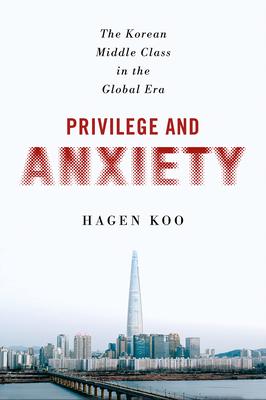In Privilege and Anxiety, Hagen Koo examines what has happened to the Korean middle class in the era of neoliberal globalization and demonstrates that global economic change brought more profound changes than mere economic decline and shrinking size to this class.
Globalization has inserted an axis of polarization into the middle class, separating a small minority that benefits from the globalized economy from the large majority that suffers from it. This internal differentiation generates a challenging dynamic within Korean society, as the newly affluent seek to distinguish themselves from the rest of the middle class to establish a new, privileged class position. Privilege and Anxiety explores how these tensions play out in three areas: consumption and lifestyle, residential differentiation, and education. In all three areas, the dominant orientation of the affluent middle class is to preserve their newfound privilege and to pass it onto their children. Their new class practices, Koo argues, bring great anxiety to both the winners and losers of neoliberal globalization.
